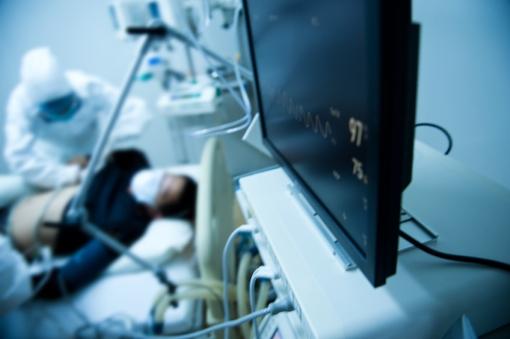South Korea's health ministry today reported 13 new MERS-CoV cases, boosting the hospital-linked outbreak total to 108, as the number of affected health facilities grew and a World Health Organization (WHO) joint mission made an early recommendation that the nation's schools resume.
Ten of the latest confirmed cases were among people exposed to the virus at Samsung Medical Center in Seoul, which experienced a gush of cases after a patient infected at an earlier hospital was admitted there, Yonhap News Agency reported today.
Health officials also reported two deaths in earlier announced cases, raising the fatality count to nine, according to the report.
List of affected facilities grows to 36
So far infections have been reported only in hospital settings. The number of people in isolation rose from about 3,000 yesterday to 3,439 today, Yonhap reported. It added that all 13 of the new cases are in people who were in isolation after suspected exposure to MERS-CoV (Middle East respiratory syndrome coronavirus).
Meanwhile, the Korea Centers for Disease Control and Prevention (KCDC) added more hospitals to its list of affected facilities. In a table translated and posted by Avian Flu Diary, an infectious disease news blog, the KCDC said 36 institutions in 7 cities and provinces are among the locations connected to the outbreak. The total is up from 29 reported yesterday.
According to the table, which appears to have data for 95 patients, nine hospitals have MERS-CoV patients and the rest were visited by a patient diagnosed as havnig the disease. The largest numbers, with 37 patients apiece, are at two hospitals: Pyeongtaek St Mary's in Gyeonggi province and Samsung Medical Center in Seoul.
WHO lauds control measures
In a related development, the WHO said today that a joint mission to investigate the outbreak and review the control measure put in place so far is going well. The agency added that South Korea's government has welcomed its initial recommendations, which include reopening schools, because they have not been linked to MERS-CoV transmission in South Korea or anywhere else.
School closures were reported in the Pyeongtaek area near one of the first affected hospitals early in the outbreak, and more than 1,800 kindergartens and schools have been temporarily shuttered, according to earlier reports.
Other recommendations from the WHO mission included strengthening infection prevention and control measures in all South Korean health facilities; asking all patients with fever and respiratory symptoms about contact with MERS patients, health facilities, or travel to the Middle East; and urging close contacts not to travel during the symptom-monitoring period.
Keiji Fukuda, MD, joint mission coleader and the WHO's assistant director-general for health security, said in the statement that outbreak control efforts have been intensified and that early discussions have been excellent.
Of the joint mission, the WHO said a timely and thorough investigation is needed whenever an emerging pathogen like MERS-CoV appears in a new setting, such as a new country, to see if the virus and transmission patterns are changing and to make sure the most appropriate control strategies are implemented.
The WHO said so far evidence suggests that South Korea's outbreak is similar to MERS outbreaks in Middle Eastern hospitals, but it added that the situation is rapidly evolving and the investigation is still under way.
See also:
Jun 10 Yonhap story
Jun 10 Avian Flu Diary post
Jun 10 WHO joint mission statement






















